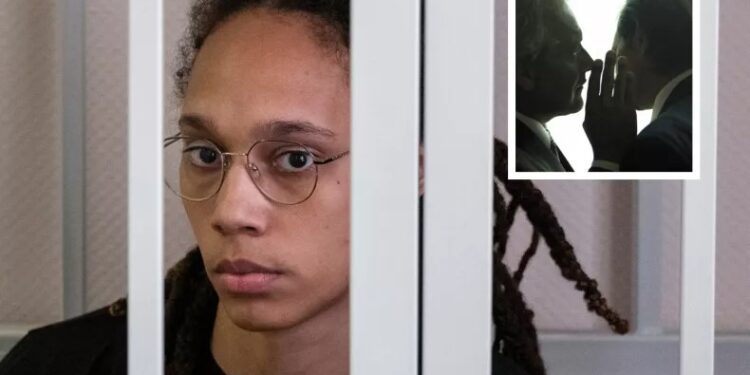The U.S. and Russia’s latest prisoner swap could signal that the Kremlin is growing anxious about the possible leak of Moscow’s secrets.
On Thursday, the U.S. agreed to release Russian arms dealer Viktor Bout in exchange for American basketball star Brittney Griner, freeing the 55-year-old Soviet military officer from prison in Illinois. Bout was serving a 25-year sentence for conspiracy to kill U.S. citizens and officials and for selling millions of dollars in weapons to the Revolutionary Armed Forces of Colombia.
Russia has long pushed for the arms dealer’s release, calling the detainment “unlawful” and saying his 2012 sentencing was “baseless and biased.”
Nikolas Gvosdev, a national security professor at the U.S. Naval War College, told Newsweek that by getting Bout back on home soil, the Kremlin is signalling that it wants to prevent Russian operatives being detained abroad from “revealing information that the Russian government would prefer to keep under wraps.”
Bout, who has been described by the Justice Department as one of the most prolific arms dealers in the world, has been previously accused of arranging the trafficking of military-grade weapons to conflict zones from Liberia to Sierra Leone and Afghanistan.
Griner, on the other hand, was arrested at a Moscow airport in February after customs officials said they found vape canisters with cannabis oil in her luggage. Thursday’s swap marks the second high-profile exchange between the U.S. and Russia in the last eight months.
Security experts say the recent developments suggest that U.S.-Russia relations are returning to Cold War-era patterns, where “the logic of arrests is no longer driven by law enforcement concerns.”
“If you have ‘one of ours’ we need to seize ‘one of yours’ to set up the trade,” Gvosdev said.
William Reno, a political science professor at Northwestern University, told Newsweek that unless there is more to the deal than just a one-off exchange, this arrangement will encourage Russia and other governments at odds with the U.S. to seize its citizens, posing a new national security threat and making American more vulnerable to foreign detentions.
“This swap may cause them to think that detaining Americans is a good way to improve their chances of getting what they want from the US government,” Reno said. “The problem with these swaps is that the solution to this one case can become a cause of more of the problem the swap was meant to address.”
As others have noted, Gvosdev pointed out that the one-for-one exchange left behind Paul Whelan, a former Marine who has been jailed for almost four years in Russia on espionage charges, which he and his family have claimed to be baseless.
Considering Russia’s approach to negotiations, Gvosdev the reason Whelan may have been left behind could be because the Kremlin may be anticipating an arrest of one of its own operatives down the road. So, Russia wants to have Whelan “waiting in reserve.”
Source: Newsweek



Recent Comments